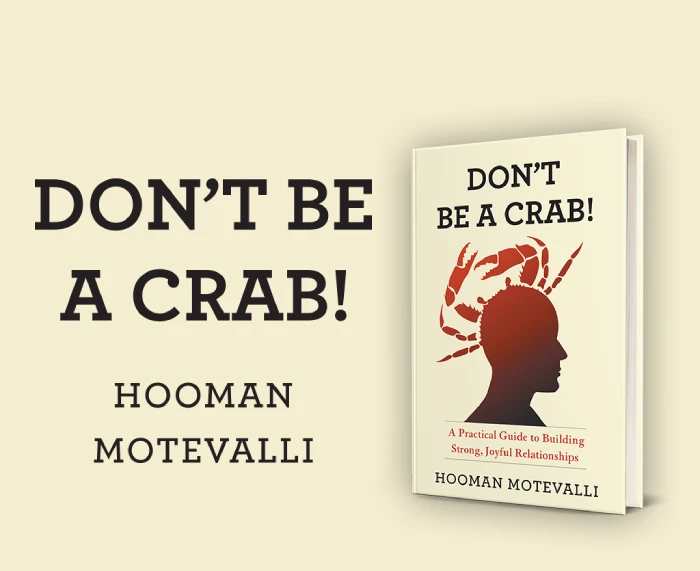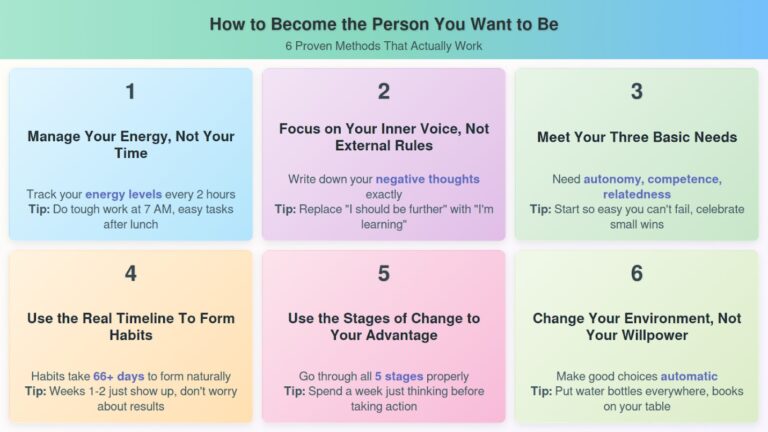Trust is like a glass vase: beautiful when whole but easy to break if dropped. It’s not only possible to rebuild a relationship damaged by conflict, but it’s also worth the work.
Whatever the problem is, a missed birthday, a broken promise, or a major betrayal, moving on takes honest self-reflection, clear communication, and actions that mean more than words.
Never forget that healing takes time and small actions. It’s not how you do something that counts, but when you do it.
Rebuilding trust isn’t always quick or easy, but the relationships that are stronger afterwards are often stronger where trust was broken. This means that these links can handle future storms with new strength.
What Makes Trust So Fragile Yet So Essential?
Sometimes trust is what keeps our relationships together, but sometimes it just breaks. Trust is an important social force that helps people get along and work together, according to Li and Betts. However, this is also what makes trust so easy to break.
At its core, trust is just putting your faith in someone. People who trust each other can get hurt, but they can also form stronger bonds and work together better. This is the reason why trust takes a long time to build but only seconds to break.
This is why trust is so hard to get right:
- When you trust someone, you put yourself out there. As Moorman and his colleagues correctly pointed out, “Without vulnerability, trust is useless because results don’t matter to the person doing the believing.” Truly trusting someone means we have something to lose.
- It hurts more to be betrayed than to trust someone. In trust situations, Deutsch found that “bad events have a bigger effect than helpful ones.” Dropping a glass is like that—one mistake can break something that was carefully held together.
- There is still risk in the world, but trust helps us deal with it. “Trust is the glue that holds groups together,” says the OECD. It lets us do things without being on high watch all the time, but the risk is always there.
- We need to trust each other and rely on each other. Thomas Simpson says that trust is important because we need to rely on other people. It makes trust necessary, but it also makes confidence weak.
- Trusting someone takes both knowledge and emotion. According to McKnight and Chervany, trust is “a desire to be sensitive.” This shows that trust is a mix of thinking logically and caring emotionally.
How Does Conflict Damage Trust?
When we fight, faith breaks down in all of our relationships, whether they are with friends, lovers, or coworkers. It’s easy to get stuck in a downhill slide when we disagree with someone.
In my book “Don’t Be a Crab”, I talk about this pattern of trust loss and stress how important it is to have the emotional intelligence to see these detrimental loops in order to fix relationships after mistakes.
This really happens like this:
- When we’re in conflict, it changes how we consider other people’s goals. You might have thought it was just a mistake when your partner forgot your birthday, but now it feels like they don’t care. Kelly discovered that when we’re angry, we see other people’s actions as damaging on purpose instead of just different from what we expected or a mistake.
- We act more carefully when we don’t know what will happen. Imagine a team member who is afraid to share their thoughts because they were punished in a meeting. Young believes that when there are environmental problems, people start hiding important information at the very time that open communication is needed the most. This action makes everyone even more suspicious.
- We start to think the worst of everyone and everything they do. During a fight, your friend doesn’t text you back right away, and you think they’re ignoring you on purpose instead of because they’re busy. According to Malhotra and Lumineau’s study on business conflicts, these negative lenses make everything look bad, even acts that aren’t bad.
Steps to Rebuild Trust After a Conflict
Rebuilding trust between people takes time and care. It’s not enough to say “sorry” after a fight or problem; you need to do something to heal both the hurt feelings and the problems that came up.
1- Have a Complete, Honest Apology
To fix lost trust, all you have to do is say sorry in person. In 2016, Lewicki and his study team found that saying “sorry” isn’t enough. The best excuses include more than one important component.
These important parts should be in your apology for it to work:
- Talk about how your actions hurt the other person’s feelings to show you’re sorry: “I’m truly sorry that my words during our team meeting caused you harm.”
- Never say something like, “I got angry because I thought my work was being picked apart, but that doesn’t make how I responded okay.”
- Own up to what you did: “I’m sorry I raised my voice and cut you off while you were talking.”
- Say something like, “From now on, I’ll take a deep breath and count to ten before I react to feedback I don’t like.”
- Say this, “I’d like to start talking about the project again, and this time, I’d really like to hear your ideas.”
- Offering to fix things, taking responsibility, and describing what happened are the three best ways to build trust.
2- Back Up Your Words with Actions
Most of the time, words aren’t enough to fix lost trust. Bottom’s study from 2002 showed that taking real steps to fix problems is often more effective than just saying sorry.
For really fixing things:
- Do something to make up for the damage you caused. For example, if you made a mistake and your friend had to stay late to fix it, offer to take something off their plate that would take about the same amount of time.
- Take care of both the real problems and the unpleasant feelings. Haesevoets said in 2013 that dealing with both sides is the best way to go: “I’ll finish the report you had to redo, and I’ve planned a coffee break for us to talk about how we can do better next time.”
- Hold on; timing is just as important as what you do. Repairing the situation quickly shows that you care about the other person.
At work, making up for mistakes could mean taking on jobs that no one wants, giving resources to make up for a loss, or coming up with creative ways to keep things in balance.
Make sure your actions show that you really want to save the relationship and aren’t just trying to “pay off” your debt and move on.
3- Keep People Safe by Making Clear Agreements
Both of you feel open and vulnerable when trust between you and someone else breaks. According to Lewicki and Brinsfield’s 2017 research, setting checkpoints and ground rules may help repair those damaged connections.
Consider these deals as a safety net:
- There will be consequences for both of you if you make another mistake.
- They make you less afraid of getting hurt again.
- They explain your limits to everyone.
Here’s how this might look in your life:
If you and your partner are keeping money secrets, you might agree, “Let’s get together every Sunday night to go over our accounts and talk about any purchases over $100.”
You could decide, “We’ll clearly say ‘this stays between us’ when something is private and make sure we both get it before sharing anything personal.”
4- Replace What Broke With What You Have Now
When you have trust issues, you need different ways to fix them. It’s very different from fixing a mistake due to a lack of skill (like forgetting something) versus fixing damage caused by dishonesty (like lying to someone).
For trust breaks based on ability: “The times got mixed up, so I forgot to pick you up.”
- Apologies normally work: people know that everyone makes mistakes sometimes.
- Planning ahead is helpful: Set up messages on your phone to remind you to do things if you’re the roommate who always forgets to do them.
- Sharing what happened is important: for example, saying “I had three dates hit at once” helps the other person understand that you weren’t ignoring them.
For trust breaks caused by lying: “I lied about where I went last night.”
- Actions speak louder than words: Focus on being honest about small things before asking for trust with bigger problems.
- Giving proof makes people feel better: For example, saying, “Feel free to call the restaurant if you’re worried about where I am”, shows that you understand why they’re worried.
- Doing little things counts: After saying things like “I’ll text you when I get there” and “I’ll be home by midnight,” your trust slowly returns.
5- Build a New Track Record Through Consistent Actions
Your trust works like a savings account where deposits need to outweigh withdrawals. Schniter’s research team found that consistent positive actions create the strongest foundation for rebuilding.
Creating your new track record means:
→ Make crystal-clear promises
- You might say to your partner: “I’ll handle the bedtime routine every Monday, Wednesday and Friday without fail.”
- You could commit to a friend: “I’ll answer your messages within 24 hours, even if it’s just to say I got them.”
→ Start small and build up:
- If you’re business partners, restart with tiny joint projects before making big investments
- If you’re coworkers, begin with meeting small deadlines before handling critical assignments
To explore more ways to strengthen your relationships, check out 5 small but powerful ways to build a healthy relationship.
6- Reconnect Through Shared Values
Reconnecting through shared core values creates a solid foundation for rebuilding your damaged relationship.
This approach works when you:
- Find values you both still share: “Even with everything that happened between us, we both still deeply care about honesty and family.”
- Have meaningful conversations: Regular talks about values, not just surface issues
- Create a vision for your future: “Here’s what our friendship could look like if we move forward together.”
When Is The Right Time To Start Fixing Trust?
Rebuilding trust is easiest when neither of you is feeling so emotionally charged and both of you really want to save the relationship. Usually, this happens after a period of time that lets the original strong emotions calm down—usually a few days or weeks, based on how bad the breach was.
Get ready by doing these things:
- Wait until neither of you is so defensive. When both of you can talk about what happened without one of you saying, “You always blame me for everything,” or the other shutting down, you and your partner are ready to start healing.
- Look for both of you to admit that something went wrong. You and your friend can say, “Yes, something went wrong here”, without one of you downplaying it (“It wasn’t even a big deal“) or exaggerating it (“You completely stabbed me in the back”).
- Don’t start fixing things until you and your friend are sure that you both want to. You don’t want to just go through the motions because you have to work together.
- Check to see if you can have easy chats. You and your family will know you’re ready when you can talk about everyday things without any stress.
- Too much pressure (“We need to fix this right now!”) will likely make things harder. Instead of pushing things, focus on constantly showing that you have changed while still giving them time.
When Should You Get A Professional To Help?
If you keep hitting a wall when trying to rebuild trust, or if the breach has caused you so much pain that it’s getting in the way of your daily life, it’s time to get help. Relationship experts say you should get help if you keep having the same fights or if the mental pain is still very strong weeks after the event. These are the signs that you need help from a professional:
- When you can’t talk about the broken trust without things blowing up.
- You should get professional help if you can’t stop thinking about what happened.
- When present issues bring up old hurts, like when your friend’s lie makes you remember being abandoned as a child.
- When losing the relationship would be terrible
FAQs
What Does True Forgiveness Look Like in Healing?
Letting go of anger doesn’t mean forgetting what happened. Real forgiveness is when you can move forward without wanting to get even while still remembering the hurt.
How Can Small Actions Create Major Trust Breakthroughs?
Those little everyday actions actually work better than big dramatic gestures. When you consistently keep your small promises, like texting when you say you will or showing up on time, it creates a pattern that helps the other person feel safe enough to trust you again.
When Is Self-Forgiveness Necessary for Relationship Healing?
Sometimes, the person who broke trust gets stuck in a sham, making it hard for them to truly make things right. They need to forgive themselves – not to let themselves off the hook, but to find that balance between being kind to themselves and still taking responsibility for what they did.







